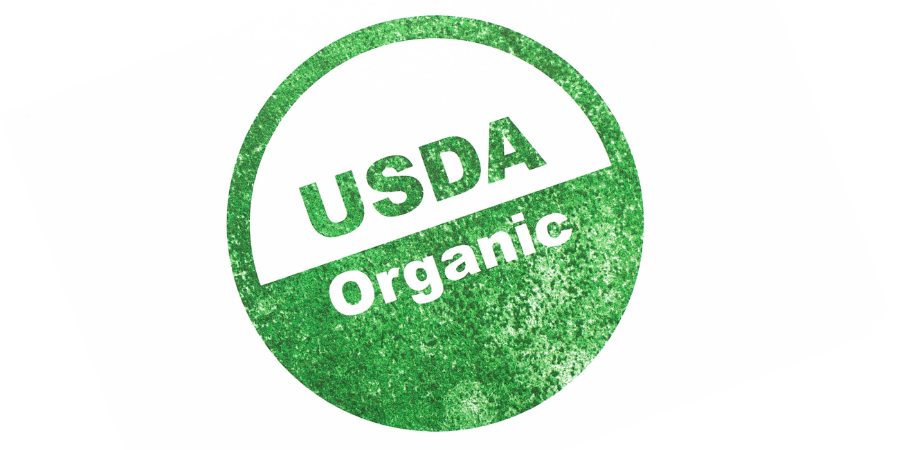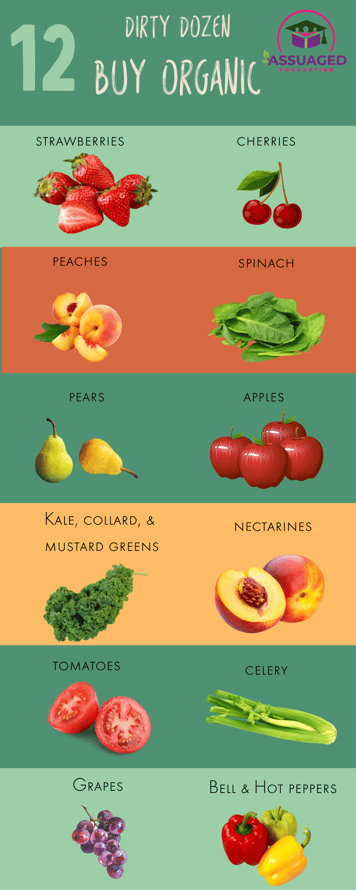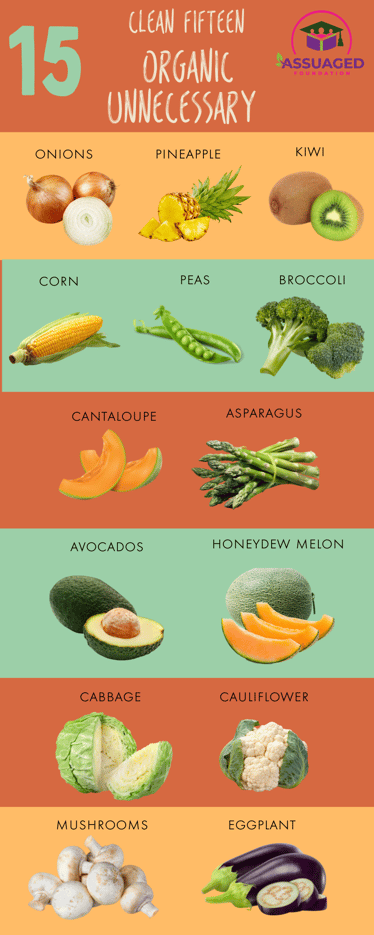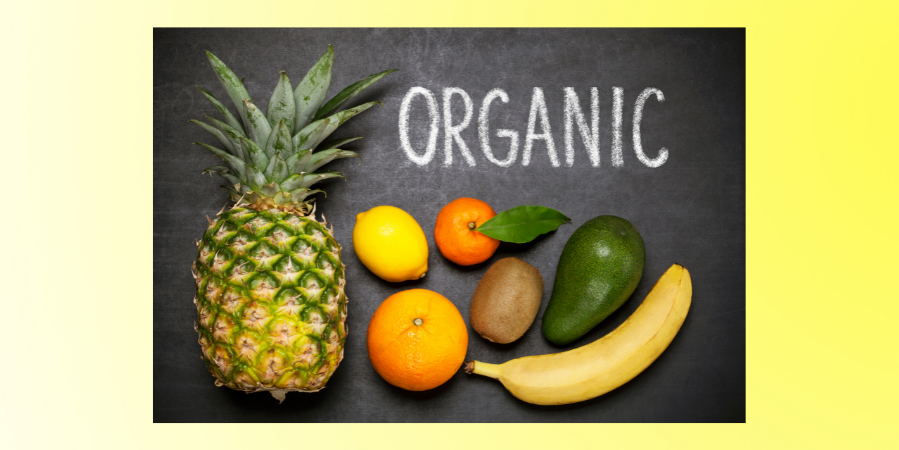Everyone knows what organic means, right?
The word organic has been around since 1940. It originates from the Greek word 'organikos', which means relating to the organ of a body. In chemistry terms, it refers to any molecule that contains carbon. Back in the 40's, the word organic meant that crops were grown without any chemical fertilizers or pesticides. [1]
Today the agricultural definition of organic means that food is produced without conventional pesticides; fertilizers made with synthetic ingredient, sewage sludge; bioengineering, or ionizing radiation.[2]

It says 'USDA Organic' on the label. What does this mean?
Produce:
- It's grown in soil without synthetic fertilizers or pesticides that have been applied 3 years prior to harvest.
- Weeds are controlled naturally by using crop rotation, hand weeding, mulching, or tilling.
- Pests are controlled using natural methods, such as birds, other insects, or traps.
Meat:
- Animals are able to graze outdoors in pastures.
- They are fed 100% organic feed.
- Animals are not given antibiotics or hormones. Instead natural methods are utilized for disease prevention.
Multi-Ingredient Food:
- No artificial preservatives, colors, or flavors.
- Minor exceptions include enzymes in yogurt, pectin in fruit jams, or baking soda in baked goods.
Organic foods are not enhanced with genetically modified organisms (GMO)[3]

How does organic food affect me and my family?
There are many benefits to buying organic food. The biggest one is protecting your family from ingesting harmful pesticides that may increase the risk of certain types of cancer. Mothers and their unborn children are especially vulnerable when exposed to synthetic fertilizers and pesticides.
Organic farming is better for the environment. Organic farming practices help to reduce pollution, conserve water, reduce soil erosion, increase soil fertility, and use less energy.[4] By taking conservation steps through organic purchases, you are contributing to preserving the Earth for your children and future generations.
Making a conscious choice to buy organic supports the ethical treatment of animals. Living conditions for organic livestock are mandated by the U.S. Department of Agriculture(USDA). Animals must have access to pasture, access to shade & indoor shelter, an exercise area, and considerations for stage of life, climate, and environment.[6]
It's so expensive. How can I eat organic on a budget?
- Shop at a farmers' market. This food is very fresh and helps boost the local economy.
- Join a food co-op. This is a community where a member may pay dues, volunteer for co-op assistance shifts, and also have a say in what items are stocked in the co-op. A non-member shopper will pay full price for their goods. [5]
- Join a Community Supported Agriculture (CSA) for regular deliveries from locally-grown farm items.
What foods should I buy organic?
What does the 'Dirty Dozen' mean?
Dirty dozenrefers to a ranking of fruits and vegetables that are recommended to be purchased as organic because they make contain a dangerous amount of pesticides.

What foods don't have to be purchased organically?
What does 'Clean Fifteen' mean?
Clean Fifteenrefers to fruits and vegetables that don't have to be purchased organically because they contain a low amount of pesticides, even when they are grown with pesticides.[7]

Now, let's answer the question 'Is health education still necessary and relevant?'
If you learned something new by reading this blog, the answer is clear! Yes! Organic health education is still necessary and relevant. Organic isn't going away anytime soon. People are living longer and a healthy diet contributes to longevity. It's our job as consumers of food to know what's going into your body.














